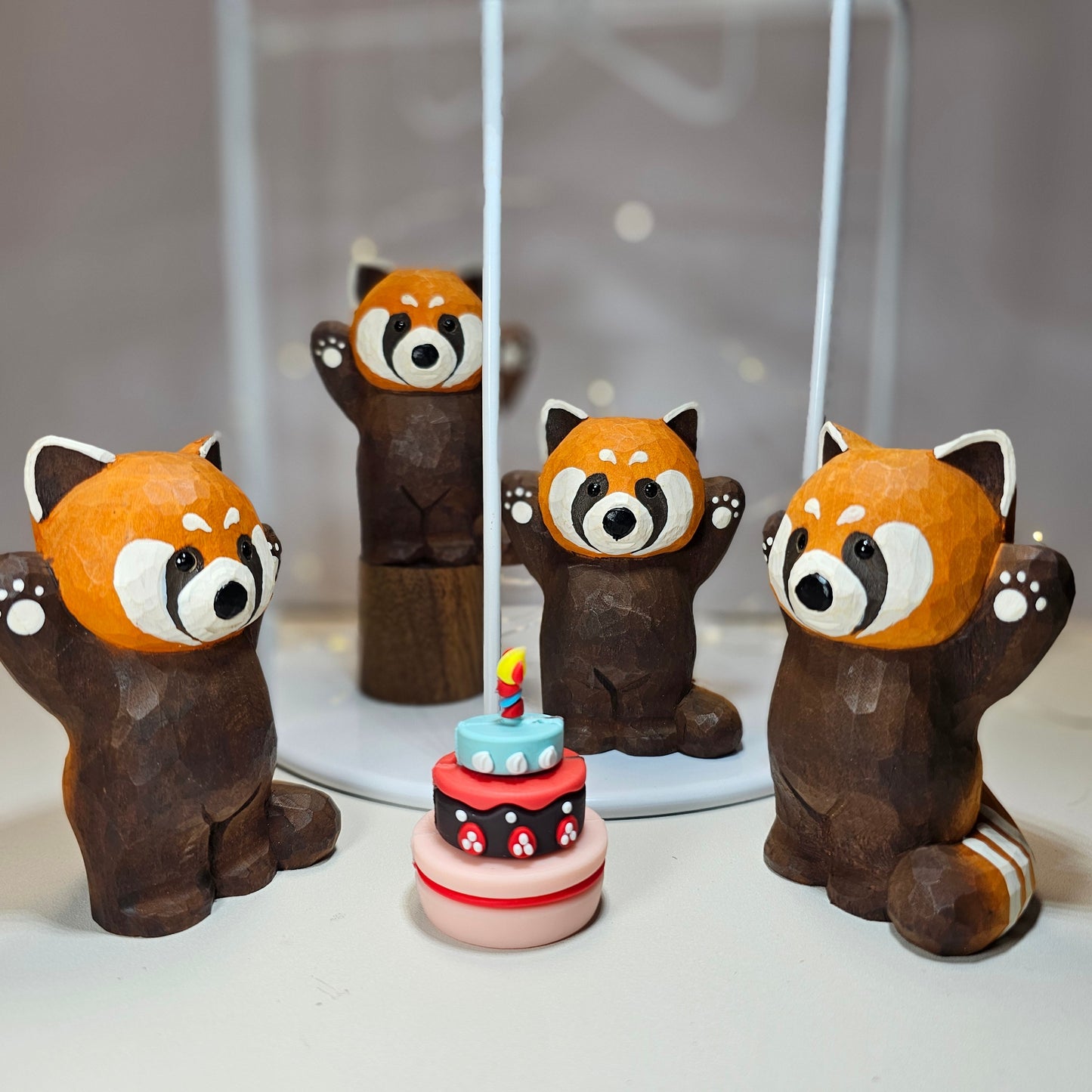
What Does the Red Panda Symbolize?
Share
What Does the Red Panda Symbolize?
 With its fluffy tail, round face, and shy personality, the red panda is one of the most beloved animals in the world. Though small and quiet, it holds deep symbolic meaning across cultures—especially in themes of balance, protection, and gentle strength.
With its fluffy tail, round face, and shy personality, the red panda is one of the most beloved animals in the world. Though small and quiet, it holds deep symbolic meaning across cultures—especially in themes of balance, protection, and gentle strength.
But what does it really mean when we connect to the red panda as a symbol or gift? Let’s explore what this rare and peaceful creature represents.
1. Balance Between Wild and Calm
The red panda lives in the high mountain forests of the Himalayas and China, balancing life between trees and ground. It represents:
-
Emotional balance
-
Harmony between action and rest
-
Peace in solitude
As a symbol, the red panda reminds us to slow down, breathe, and honor the quiet parts of ourselves.
2. Shyness With Strength
Though shy and gentle, red pandas are also survivors—living in cold climates, facing extinction, and still holding on. This gives them meanings tied to:
-
Inner strength
-
Gentle perseverance
-
Protective softness
They teach us:
“You don’t have to be loud to be powerful.”
3. Uniqueness and Rarity
Red pandas are rare. With their own ancient family line, they are unlike any other species on Earth. Symbolically, they represent:
-
Individuality
-
Mystery
-
Being comfortable with being different
A red panda reminds us to embrace what makes us stand out, not hide it.
4. Nature’s Guardian
In some Asian cultures, the red panda is seen as a guardian of the forest—a quiet watcher who keeps nature in balance.
As a spiritual symbol, it can mean:
-
Environmental awareness
-
The need to protect what is fragile
-
A connection to wild beauty
Conclusion: A Soft Strength We Can Learn From
Whether in art, dreams, or spirit, the red panda reminds us that strength can be quiet, beauty can be rare, and the gentlest beings are often the most meaningful.
It’s a symbol of balance, peace, and resilience wrapped in fur and silence.










